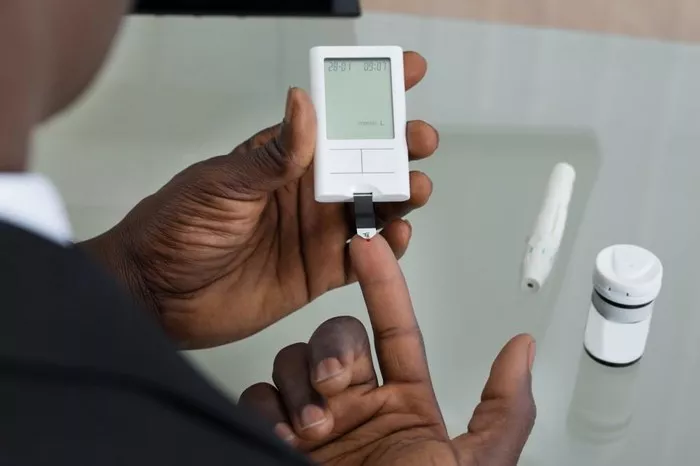The relationship between sugar consumption and diabetes is a topic of considerable interest and concern in today’s society. With the prevalence of sugary foods and beverages in the modern diet, many people wonder whether consuming too much sugar can lead to the development of diabetes.
In this article, we will explore the connection between sugar intake and diabetes risk, examining the role of sugar in diabetes development, risk factors, and preventative measures.
Understanding Diabetes
Diabetes is a chronic metabolic disorder characterized by elevated blood sugar levels resulting from either insufficient insulin production or ineffective use of insulin by the body. There are two main types of diabetes: type 1 and type 2.
In type 1 diabetes, the immune system attacks and destroys the insulin-producing beta cells in the pancreas, leading to a lack of insulin production. Type 1 diabetes is typically diagnosed in childhood or adolescence and requires lifelong insulin therapy.
Type 2 diabetes, on the other hand, is characterized by insulin resistance, where the body’s cells become less responsive to insulin, leading to impaired glucose uptake. Type 2 diabetes is often associated with lifestyle factors such as obesity, sedentary behavior, and poor dietary choices.
The Role of Sugar in Diabetes Development
While excessive sugar consumption is not directly responsible for causing diabetes, it can contribute to the development of type 2 diabetes through several mechanisms:
1. Weight Gain and Obesity:
Foods and beverages high in added sugars are often calorie-dense and low in nutritional value, leading to excess calorie intake and weight gain. Obesity is a significant risk factor for type 2 diabetes, as excess body fat, particularly around the abdomen, can lead to insulin resistance and impaired glucose metabolism.
2. Insulin Resistance:
High sugar intake, particularly from sources such as sugary drinks and processed foods, has been associated with insulin resistance, where the body’s cells become less responsive to insulin. Insulin resistance is a hallmark feature of type 2 diabetes and can lead to elevated blood sugar levels over time.
3. Inflammation and Oxidative Stress:
Excessive sugar consumption has been linked to chronic inflammation and oxidative stress, both of which are implicated in the development of insulin resistance and type 2 diabetes. Inflammatory pathways triggered by high sugar intake can disrupt insulin signaling and promote glucose intolerance.
Risk Factors for Diabetes
While sugar consumption can contribute to diabetes risk, several other factors also play a role in the development of the disease:
1. Family History:
Genetics plays a significant role in diabetes risk, with individuals having a family history of diabetes being at higher risk of developing the condition themselves.
2. Obesity:
Excess body weight, particularly abdominal obesity, is a major risk factor for type 2 diabetes. Obesity is associated with insulin resistance and impaired glucose metabolism, increasing the likelihood of diabetes development.
3. Physical Inactivity:
Sedentary behavior and lack of regular physical activity are associated with an increased risk of type 2 diabetes. Exercise helps improve insulin sensitivity, promote weight loss, and regulate blood sugar levels.
4. Poor Diet:
A diet high in processed foods, saturated fats, and added sugars and low in fruits, vegetables, and whole grains is linked to an elevated risk of type 2 diabetes. Making healthy dietary choices, such as reducing sugar intake and increasing fiber consumption, can help lower diabetes risk.
Preventative Measures
While sugar consumption is not the sole determinant of diabetes risk, reducing sugar intake and adopting a healthy lifestyle can help prevent or delay the onset of type 2 diabetes. Some preventative measures include:
1. Balanced Diet:
Focus on a balanced diet rich in fruits, vegetables, whole grains, lean proteins, and healthy fats. Limit consumption of sugary foods and beverages, opting for alternatives such as water, herbal tea, or unsweetened beverages.
2. Regular Exercise:
Engage in regular physical activity, aiming for at least 150 minutes of moderate-intensity aerobic exercise per week. Incorporate activities such as walking, jogging, cycling, swimming, or strength training to improve insulin sensitivity and maintain a healthy weight.
3. Weight Management:
Maintain a healthy weight through a combination of diet and exercise. Aim for gradual and sustainable weight loss if overweight or obese, as even modest weight loss can improve insulin sensitivity and reduce diabetes risk.
4. Regular Screening:
Attend regular health check-ups and screenings to monitor blood sugar levels, blood pressure, and cholesterol levels. Early detection and management of risk factors can help prevent or delay the onset of diabetes and its complications.
Conclusion
In conclusion, while eating too much sugar is not the sole cause of diabetes, it can contribute to the development of type 2 diabetes through its effects on weight gain, insulin resistance, inflammation, and oxidative stress.
Diabetes risk is influenced by a combination of genetic, lifestyle, and environmental factors, with sugar consumption being just one piece of the puzzle. By adopting a healthy lifestyle, including a balanced diet, regular exercise, weight management, and regular screening, individuals can reduce their risk of developing type 2 diabetes and improve their overall health and well-being.


























